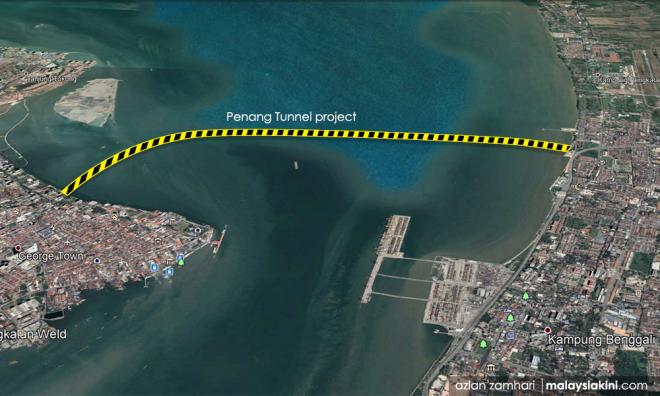
In January 2018, the Malaysian Anti-Corruption Commission (MACC) began its probe on the Penang undersea tunnel project with a series of high profile arrests.
Politics immediately came into play, with the then Penang chief minister Lim Guan Eng on the defensive against a slew of allegations by Gerakan and MCA leaders.
This instalment of KiniGuide will sift through the noise and provide the backstory behind the mega-project, based on information from Penang’s Public Accounts Committee and documents tabled to the Penang legislative assembly in 2016.
1. What exactly is the undersea tunnel?
The undersea tunnel is a 7.2km tunnel that connects George Town on Penang Island to Butterworth on the mainland.
It is just one component of the ambitious Penang Transport Master Plan (PTMP) which was planned as far back as 2011.
The undersea tunnel is part of a package deal - the company that wins the bid would also have to build two roads connecting Gurney Drive and Air Itam to the Tun Dr Lim Chong Eu Expressway and another paired road connecting Tanjung Bungah to Teluk Bahang.
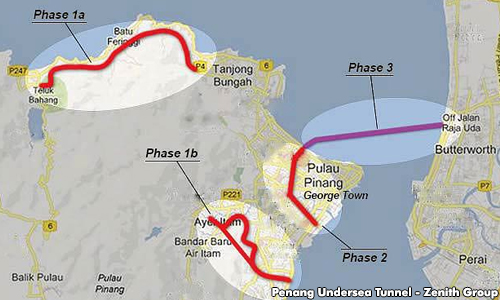
2. Was there an open competitive tender?
The process began in 2011. Sixty companies (43 local and 17 international firms) took part in the pre-qualification briefing, but eventually, eight were qualified to participate in the request for proposal stage.
Finally, the bid was won by Consortium Zenith BUCG. The special purpose vehicle (SPV) was led by Beijing Urban Construction Group (BUCG) in collaboration with a few local firms.
The Tender Board was satisfied that the winning bidder possessed the requisite technical experience, financial capability and offered the lowest cost.
The Tender Board and Technical and Financial Evaluation Committee were chaired by the state secretary and the state financial officer.
3. How many foreign companies were part of Consortium Zenith BUCG?
Just one - BUCG.
BUCG had a paid-up capital of (RM541 million), followed by Zenith Construction Sdn Bhd (RM3.8 million), Sri Tinggi Sdn Bhd (RM1.2 million) and Juteras Sdn Bhd (RM750,000).
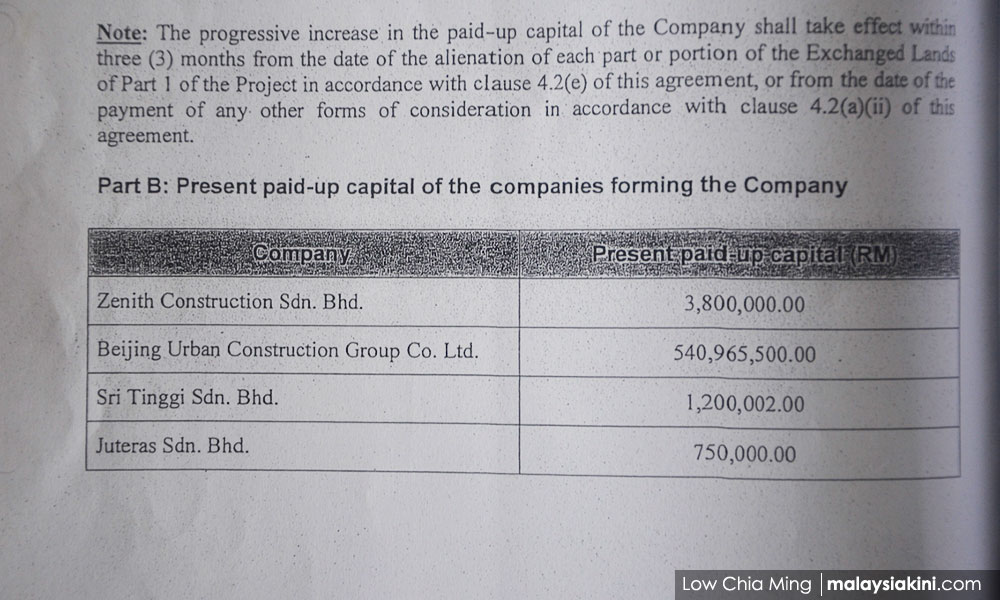
Combined, they are far above the RM381 million threshold set by the state government.
BUCG was disqualified from the consortium after a fatal crane accident in Kuala Lumpur in 2016. Following this, Consortium Zenith BUCG was renamed Consortium Zenith Construction Sdn Bhd.
4. Why are there claims that CRCC was part of the SPV?
State government officials appear to have "mistakenly" named China Railway Construction Corporation (CRCC) as one of the components of the SPV back in 2013.
This was amplified by statements made by critics, mostly BN leaders.
However, the agreement between the state government at the SPV showed CRCC was not part of the SPV.
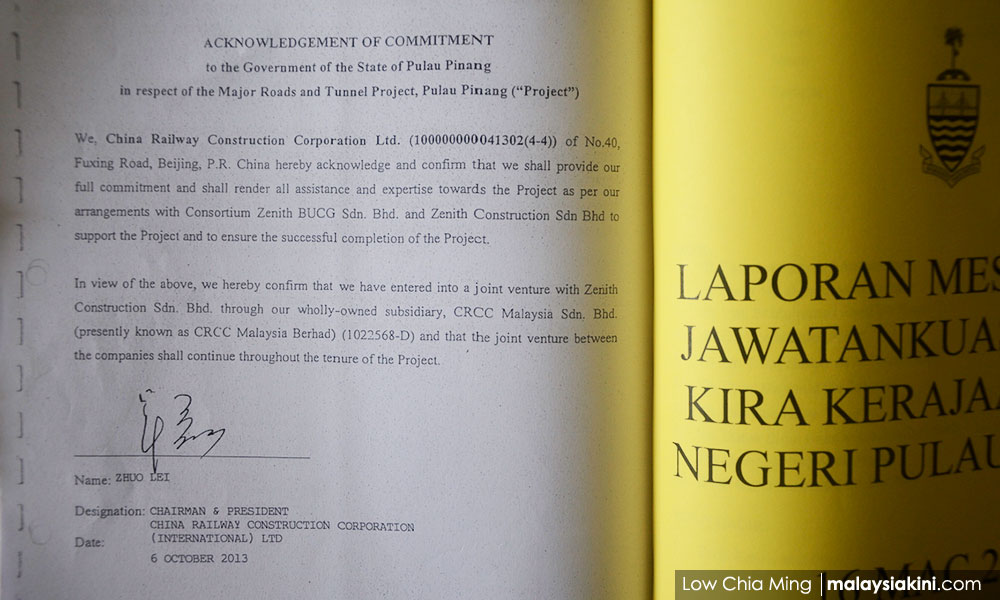
5. Is CRCC involved in the undersea tunnel project in any way?
Yes. CRCC Malaysia itself has clarified that it was contracted to do work by the SPV and was not part of the SPV.
In 2013, Consortium Zenith BUCG signed two agreements with CRCC. The China state-owned multinational was assigned to work on the detailed project design, engineering, materials procurement and construction of the undersea tunnel and expressways.
At the time, the deal involved CRCC undertaking 70 percent of the construction work while BUCG would handle the remaining 30 percent.
Now that BUCG was no longer involved in the project, the state government has yet to announce who will take over the 30 percent.
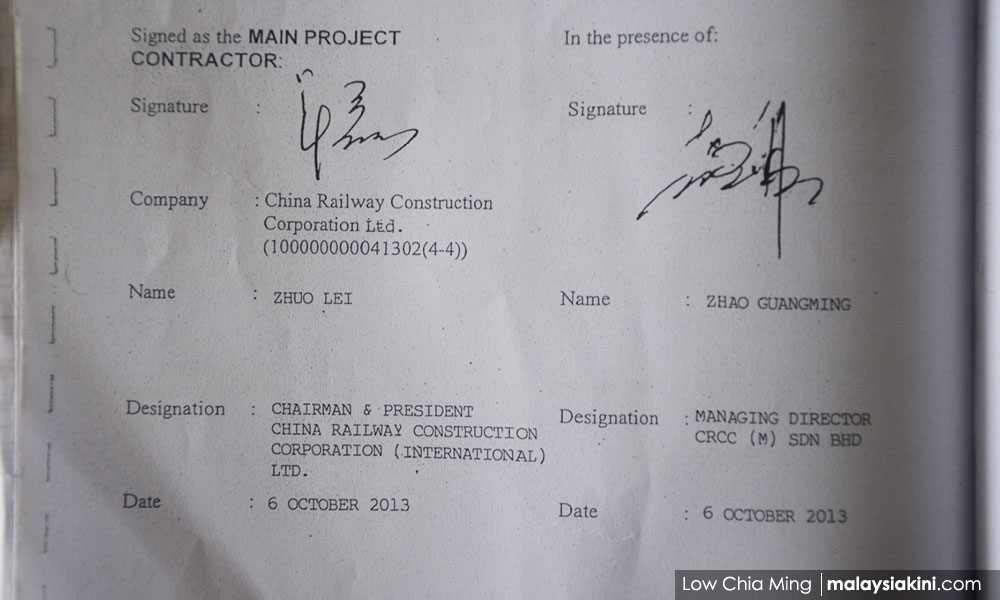
6. Now the BUCG is no longer part of the SPV that has changed, will it matter?
Yes. Recall that one condition set by the state government was for the companies forming the SPV to have a combined paid-up capital of at least RM381 million.
Without BUCG, there will be questions on whether Consortium Zenith Construction Sdn Bhd will have the financial strength necessary to pull off the project.
However, the agreement between the state government and SPV only compelled the SPV to progressively increase its paid-up capital.
Currently, Consortium Zenith Construction Sdn Bhd consists of Zenith Construction Sdn Bhd (47.12 percent equity), Juteras Sdn Bhd (0.75 percent), Kenanga Nominees (Tempatan) Sdn Bhd (38.92 percent) and Vertice Bhd (formerly known as Voir Holdings Bhd) 13.21 percent.
7. How will the three major road and tunnel projects be financed?
The total cost for this project is RM6.3 billion. The feasibility study and detailed design (FSDD) component will cost RM305 million, while the land acquisition will cost RM546 million and the balance of RM5.49 billion will be spent on construction.
According to the preliminary agreement, the state will hand two plots of land in Sri Tanjung Pinang (STP1) to the SPV in exchange for the FSDD (Part 1) while another 110 acres of land in STP2 will be handed over in for the construction and toll collection component (Part 2).
Both STP1 and STP2 are reclaimed land in the northern parts of Penang Island.
All exchanged lands are deemed to be alienated at a pegged value of RM1,300 per square feet of net developed area, which is three times the valuation by made by the state Valuation and Property Services Department (JPPH).
A Public Accounts Committee (PAC) report revealed that Consortium Zenith BUCG initially requested for 157 acres of land but was persuaded by the government to accept 110 acres.
The state government will grant the company the right to the concession to operate, maintain and manage (including toll collection) in relation to the undersea tunnel (Penang Third Link, as mentioned in the agreement), for an initial period to be determined in the final agreement, but which in any event shall not be less than 30 years.
The toll rate will be the same as the Sultan Abdul Halim Muadzam Shah Bridge, better known as the second Penang bridge, which is set by the federal government.
8. Did the state government pay any fees for the undersea tunnel?
There is no evidence to show that the state government has paid any money or handed land to Consortium Zenith Construction Sdn Bhd for the undersea tunnel project.
However, land known as STP1 has already been alienated to the SPV for the completion of the FSDD on the three major roads.
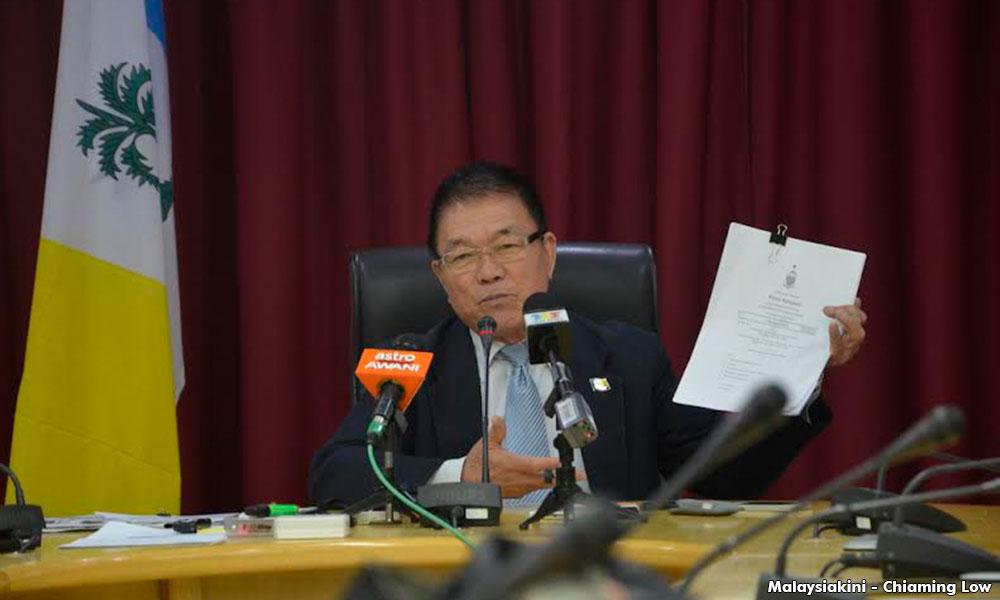
Lim and his then exco member Lim Hock Seng (photo) have, on numerous occasions, stressed that the FSDD on the undersea tunnel is only 90 percent complete.
However, Penang Gerakan head Teng Chang Yeow has repeatedly accused the Penang government of lying and that RM11.2 million was paid to consultancy firm HSSI Sdn Bhd to verify the works carried out by the SPV and certify the claims.
9. Has land that was yet to be reclaimed been pre-sold?
No. Ewein Zenith Sdn Bhd - a joint-venture between public-listed Ewein Bhd and Consortium Zenith Construction Sdn Bhd - has been granted the rights to purchase 50 acres of the reclaimed land promised to Consortium Zenith BUCG Sdn Bhd by the state government.
Ewein Zenith Sdn Bhd has publicly stated that it would develop a resort known as the “Wellness City of Dreams”. The project has been accepted as an Entry Point Project (EPP) under the Economic Transformation Plan (ETP).
Consortium Zenith BUCG’s commitment towards Ewein Zenith Sdn Bhd is to sign the sales-and-purchase agreements within three months of gaining possession of the said land.
The deal was laid out in a Memorandum of Agreement signed in 2016, in which a RM14.157 million earnest deposit was paid by Ewein Zenith Sdn Bhd. The sum is refundable if the approvals from the authorities, as laid out in the MOA, could not be obtained.
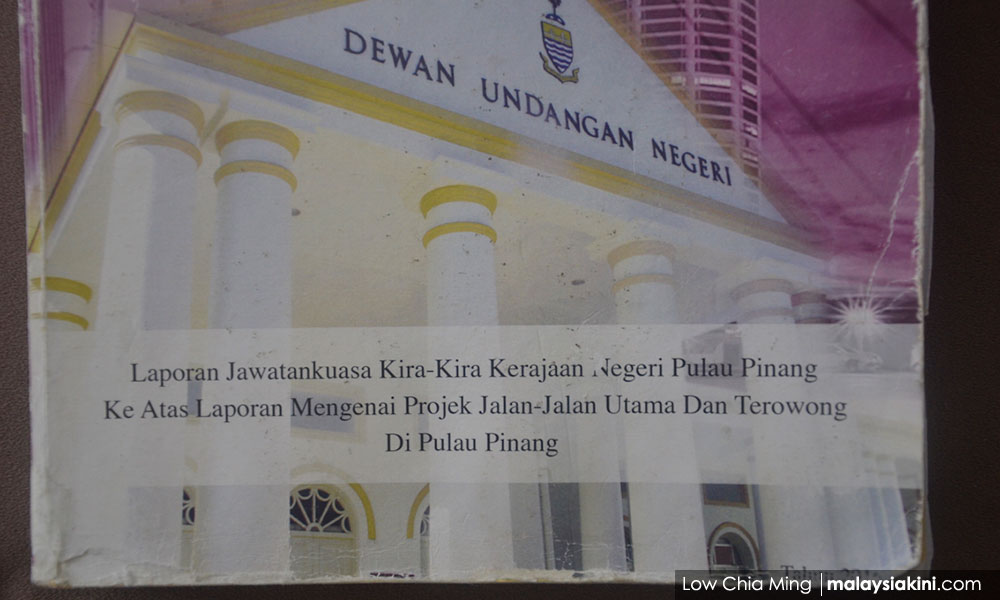
10. When is the feasibility study for the undersea tunnel supposed to be completed?
According to the PAC report, all studies for the three major roads and undersea tunnel need to be completed within 30 months, which expired on April 3, 2016.
According to the master programme (scope and deliveries) in the agreement, Consortium Zenith BUCG shall complete the detailed designs by March 19, 2016, and submit an updated report to state government by May 13, 2016.
11. Who is going to pay for the detailed environmental impact assessment (DEIA)?
Lim had claimed that the state government has alienated lands valued at RM208 million in exchange for the DEIA reports for the three major roads.
Following this, Teng correctly pointed out that this claim contradicted the information laid out in the PAC report, which stated that the DEIA cost will be borne by Consortium Zenith BUCG.
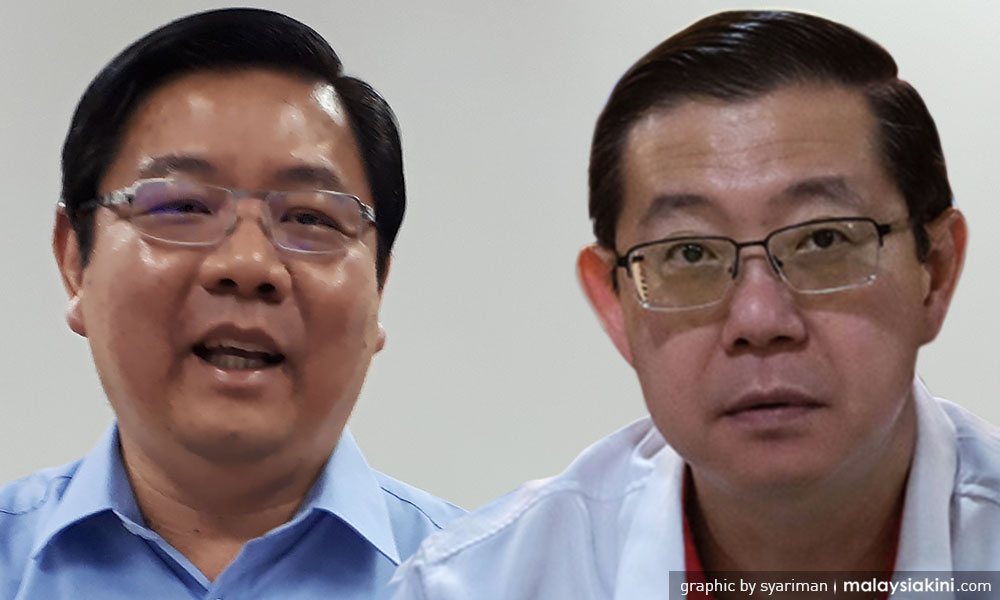
Even though the Department of Environment will need to look into the FSDD before granting any DEIA approval, the RM208 million worth of land mentioned by Lim is in fact payment for FSDD, not DEIA.
Normally, the developer will appoint its own consultant to prepare the DEIA report. The state government, following a request by Penang Forum, agreed to appoint an independent consultant to draft the DEIA report for three major roads and the undersea tunnel, with the amount paid by the state government to be reimbursed by Consortium Zenith BUCG, in cash.
There is no mention of the DEIA cost in the preliminary agreement, but PAC recorded it as RM4.9 million.
12. What is the MACC investigating?
Thus far, statements from the MACC indicate that only the undersea tunnel portion is being investigated.
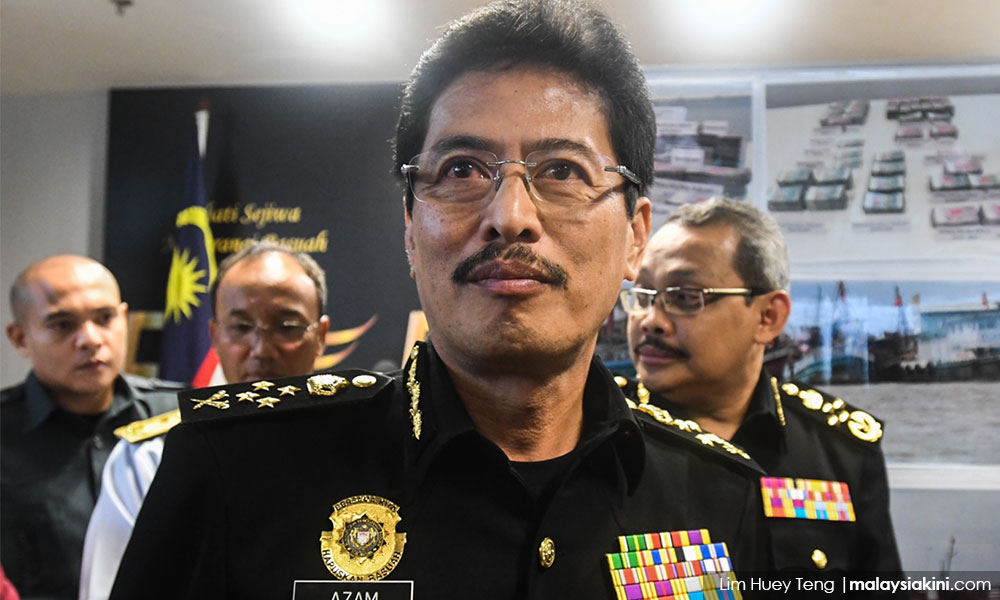
MACC deputy chief commissioner (Operations) Azam Baki (photo) told Bernama that the probe will look into the payment process for the companies involved in carrying out the tunnel feasibility study.
The same report quoted anonymous sources as saying the ongoing investigations have now shifted towards the payment of RM305 million to the companies which conducted the feasibility study of the mega-project, including to determine whether the payment is the true value or whether it was inflated, or whether the companies involved have the accreditation to carry out the feasibility study for the undersea tunnel.
Last week, New Straits Times (NST) reported that MACC is probing if money was misappropriated from the feasibility study awarded for the Penang undersea tunnel project.
The daily quoted an unnamed source as saying that MACC was scrutinising if there were elements of "corporate interest" in how the contract for the project’s feasibility study was awarded and whether the company that was appointed to carry out the feasibility study really intended to conduct them or was it merely using this as a way to obtain the two plots of land.
Four days ago, NST again quoted an unnamed source as saying that several politicians are believed to have received a significant amount of money as kickbacks in the approval process for the proposed undersea tunnel project and they may be linked to the two plots of land involved in the land swap deal as payment for the studies.
The information released in the news report is rather confusing, as it concurrently mentioned the undersea tunnel project, RM305 million study fees and two plots of land which were given to the company.
However, the facts show that the undersea tunnel's FSDD only costs RM96.24 million, while RM305 million is the total FSDD cost for all three major roads plus undersea tunnel project.
As for the two pieces of land, it is payment for the work done for three major roads, and are unrelated to the undersea tunnel.
Nevertheless, the state government has denied all the allegations.
13. The latest updates on MACC's investigations as of early August 2020.
In early July 2020, the MACC said they have almost completed their investigation into the undersea tunnel case.
By the end of July, it said the investigation papers would be submitted to the Attorney-General’s Chambers (AGC) soon.
Lim was also called in three times for questioning by the MACC around the end of July.
On Aug 6, he was once again called in for questioning by the graftbusters at night before he was detained overnight.
On Aug 7, Lim was charged with soliciting bribes in connection with the Penang undersea tunnel project.
MACC had also previously interviewed Penang Chief Minister Chow Kon Yeow and former state executive councillor Dr Afif Bahardin as part of its probe into the project.
Earlier this month, its officers also paid a visit to the offices of two serving Penang state executive councillors.
Former Penang Port Commission chairperson Jeffrey Chew, meanwhile, was arrested on July 1 and remanded for four days to facilitate investigations.
He was later released on a RM100,000 bail. - Mkini


No comments:
Post a Comment
Note: Only a member of this blog may post a comment.